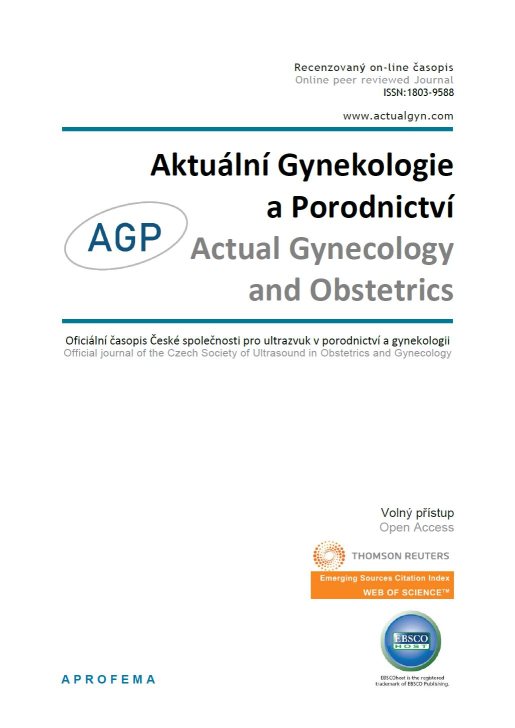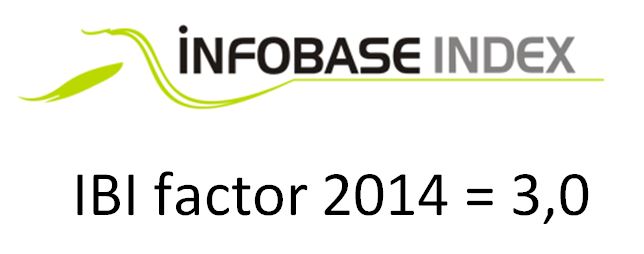











 Official publication of the Czech Society of Ultrasound in Obstetrics and Gynecology.
Official publication of the Czech Society of Ultrasound in Obstetrics and Gynecology.

Abstract from the Annual Fetal Medicine Conference held in Prague, 9.1.2015, Congress Centre Homolka
The study describes the stress response in the central cotyledon zone of placental tissue and in maternal whole peripheral blood to pregnancy related complications including gestational hypertension (n=31), preeclampsia w or w/o fetal growth restriction (n=95), and fetal growth restriction (n=39) using real-time RT-PCR and genes encoding Hsp27, Hsp60, Hsp70, Hsp90 and HspBP1 proteins.
The placental tissue does not respond to pregnancy induced hypertension, fetal growth restriction and short-term severe preeclampsia that requires immediate termination of gestation. Upregulation of Hsp27, Hsp90 and HspBP1 appears just in case of long-term deteriorated conditions (usually in mild preeclampsia, that enable further continuation of gestation, when properly treated).
On the other hand, maternal circulation is able to reflect both maternal and fetal pathologic conditions. While pregnancy related complications always induce upregulation of Hsp70 and downregulation of Hsp90 in maternal whole peripheral blood, the increase of Hsp60 mRNA levels occurs entirely in patients with preeclampsia and/or fetal growth restriction. Hsp60, Hsp70 and Hsp90 are dysregulated in maternal circulation irrespective of the severity of the disease (in both mild and severe preeclampsia) and the requirements for the delivery (before and after 34th week of gestation). Nevertheless, the highest Hsp60 mRNA levels may be observed in pregnancies with signs of the centralization of the fetal circulation associated with fetal hypoxia.
Hromadnikova I, Dvorakova L, Kotlabova K, Kestlerova A, Hympanova L, Novotna V, Doucha J, Krofta L. Assessment of placental and maternal stress responses in patients with pregnancy related complications via monitoring of heat shock protein mRNA levels. Mol Biol Rep. 2014 Oct 31. [Epub ahead of print]
The work was supported by the Charles University research program PRVOUK P32.